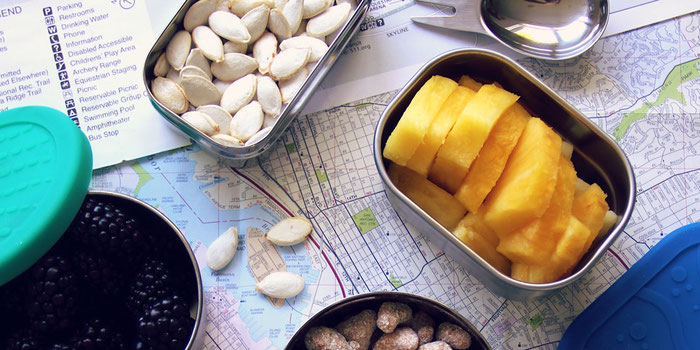Travel is full of disposable products.
Everything from single serving sizes to inflight meals to takeaway dinners.
It can sometimes be a challenge to be green, especially while traveling.
But with just a simple tips and tools, you can aim for zero waste, even during travel.
Zero waste can be as easy as simply being mindful of what you use.
And then it quickly becomes second nature.
Here are some super easy tips to get started going green!
packing tips
1
Aim for powder or solid beauty products with zero waste packaging, like toothpaste tabs, solid soap bars, deodorant bars, or shampoo bars.
They're longer lasting, multi-functional, spill-proof, and way easier to get through airport security.
2
It's easier, cheaper, more fun, and you can create what you like.
If you really want to carry liquids, easily transport them in reusable jars or soft travel bottles.
3
Think multi-purpose.
Baking soda can be used as a cleanser, shampoo, toothpaste, deodorant, laundry detergent, and more.
Same goes for castile soap which can also be used for most personal care, and also detergent and cleaning.
4
Stay away from plastic by using bamboo products.
Use sustainable, biodegradable, non-toxic bamboo cutlery and a bamboo toothbrush instead.
5
Avoid buying disposable products like straws, cotton pads, q-tips, and razors.
They all go straight to the landfill.
Aim for reusable products that you can keep with you.
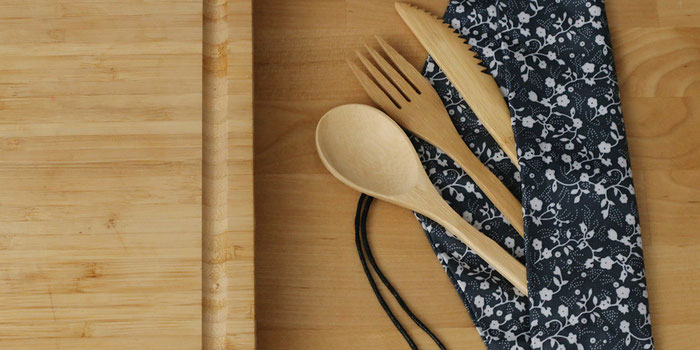
6
Men, for shaving needs, try a simple straight razor or a non-disposable safety razor.
7
Ladies, ditch the disposable feminine hygiene products.
Get a menstrual cup and instantly simplify your life.
8
Make a capsule wardrobe of only the essentials.
These items can be easily mixed and matched, layered, worn repeatedly, and also quickly and easily laundered with just a bit of soap, hung to dry, and be clean and ready to go in a few short hours.
9
No need to use clothes dryers; they are huge money and energy wasters that also destroy your clothes.
Plus, hang drying your clothes outside in the fresh air infuses them with negative ions, which make you feel better.
10
If you need to add or subtract clothing items, purchase and donate clothes at second hand shops.
Textile waste is a worldwide problem that we all need to be more cognizant of, especially when textiles can be recycled, upcycyled, or re-used.
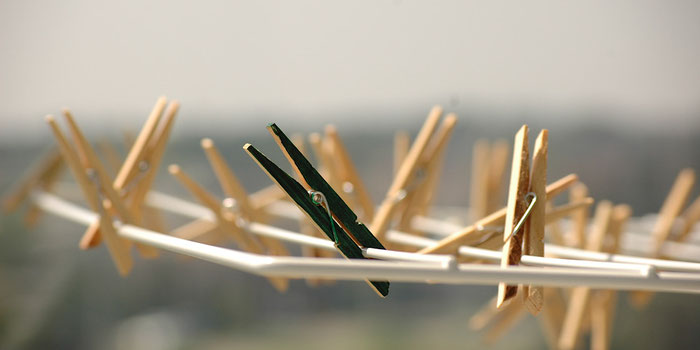
transit tips
11
It's easier and less of a burden on your mind and body.
The less space you have, the less you'll be tempted to fill it.
12
Travel carry-on only.
Checking a bag will cause paper waste since they’ll put a sticker tag on it, which can't be recycled.
13
Go paperless.
Don’t print documents or tickets unless absolutely necessary, which it hardly ever is.
Most airlines, bus, train and metro lines all have apps which allow you to purchase your tickets and display a mobile e-ticket on your smartphone.
14
Just say no to paper receipts.
You don’t want the trash, and you definitely don't want your skin to touch that toxic paper covered in carcinogenic BPA.
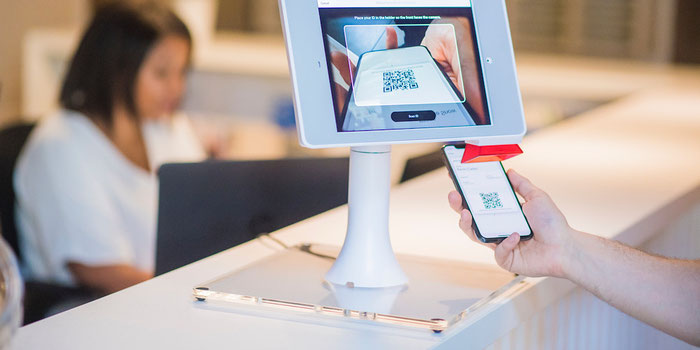
15
Don’t purchase or carry around paper books, magazines, or dvds.
Download digital entertainment instead such as music, movies, or books.
16
Try to avoid flying whenever possible.
Use Rome2rio to research all possible land or sea alternatives.
17
If you fly, you can book a low carbon emission flight or you can carbon offset your flight.
Anything to help reduce your carbon footprint is a step in the right direction.
18
Use your own headphones to plug into any inflight entertainment so you don’t purchase or use their plastic disposables that will go right in the trash.
19
Avoid airplane waste products.
Pack snacks.
Ask to use your own jar or bottle.
Don't get ice because it uses an additional cup.
Say no to single use straws and napkins.

dining tips
20
Eat at local restaurants and use actual plates and silverware.
You'll cause zero packaging to be used, plus it's fun and a great way to sample the local culture.
21
Try local street foods.
Most are easily handheld and packaging-free.
Say no to extra wrapping papers, napkins, or containers.
22
For takeaway food, try to aim for establishments that use eco-friendly, recyclable, or better yet, compostable food containers, utensils, napkins, or straws.
If a restaurant doesn't use recyclable or sustainable items, don't be afraid to voice your opinion that it's something you'd like to see.
And, never let anyone give you styrofoam!
That darn evil number 6, foamed polystyrene, is not widely recycled, and is usually just pure trash.
23
Carry a lightweight spork, or a bamboo utensil set so that you never have to use plastic disposables.
24
A re-usable container can be used to get takeaway food, transport leftovers from restaurants, or buy in bulk from a shop.
25
Carry a reusable napkin or small absorbent towel or cloth that can be used instead of napkins or to wrap up snacks or food items.
26
Use a plastic-free reusable water bottle.
You can fill it at drinking fountains at transport stations.
Never buy bottled water.
Don't buy the hype.
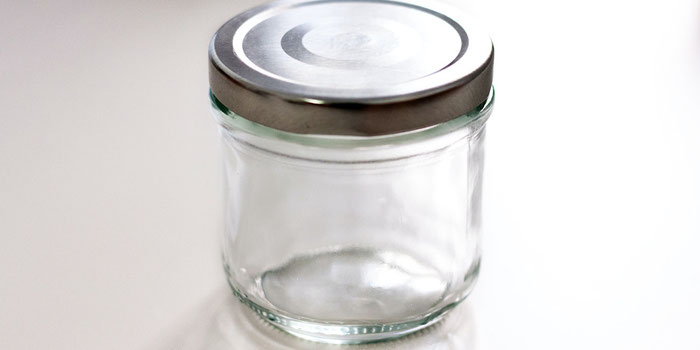
27
A simple mason jar can be a great option for drinks, snacks, foods, beverages, toiletries, or to take home leftovers.
And since its heat resistant, it can be used for hot coffee and tea as well.
Save a disposable coffee cup.
28
29
Always use a reusable bag for shopping.
You can use your backpack or pack a lightweight, foldable tote bag.
30
Mesh produce bags eliminate those pesky plastic produce bags.
Plus they're multi-functional.
They make great beach bags.
31
Shop at farmers markets or natural shops for the best local and seasonal produce and to buy bulk foods like nuts and beans.
32
Try to eat local by patronizing business that strive to source local produce.
Shop for local and seasonal fruits and vegetables.
Drink local microbrews and locally produced wines.
Support cafes who roast their own coffee beans.
Slow food is better for the environment.
Local, local, local.
33
A plant based diet significantly reduces your carbon footprint and avoids contributing to wasteful animal agriculture.

destination tips
34
Zero emissions, plus it's good for you.
And you'll get a more immersive, authentic travel experience.
35
When you can’t walk, take public transport as often as you can to reduce your carbon footprint.
36
Stay in homes instead of hotels.
In homes you can recycle, compost, make your own products, cook your own meals, and do your own laundry.

37
If you do stay in a hotel, put the no housekeeping sign up so all your linens don't get laundered every day and waste water.
38
Be ever mindful of your resource consumption.
Conserve water.
Turn off lights.
Lower the heat or the AC.
Skip the dishwasher, the microwave, the dryer.
You don't need them.
39
Don’t buy souvenirs.
Use your camera to save your memories.
It's more unique, totally free and takes up no space.
40
Spend your money on experiences, not things because experiences make you happy!


